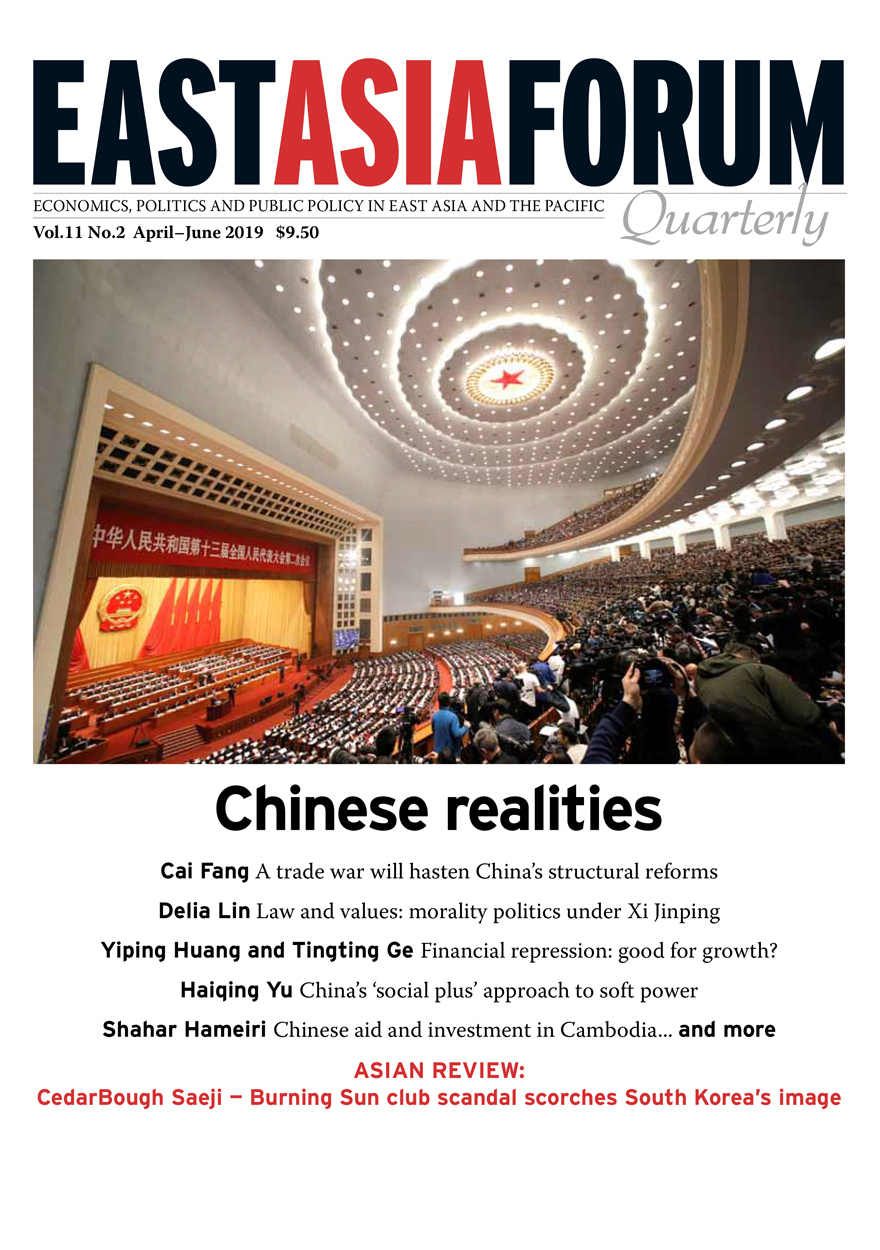East Asia Forum Quarterly
East Asia Forum Quarterly grew out of East Asia Forum (EAF) online, which has developed a reputation for providing a platform for the best in Asian analysis, research and policy comment on the Asia Pacific region in world affairs. EAFQ aims to provide a further window onto research in the leading research institutes in Asia and to provide expert comment on current developments within the region. The East Asia Forum Quarterly, like East Asia Forum online, is an initiative of the East Asia Forum (EAF) and its host organisation, the East Asian Bureau of Economic Research (EABER) in the Crawford School of Public Policy in the ANU College of Asia & the Pacific at The Australian National University.
Submission details
Unsolicited submissions to EAF are welcome. An analytic op-ed piece that is accessible to a general audience and written in crisp language is required. The preferred length of submissions is around 800 words. Submissions will be double-blind reviewed and, if accepted for publication, edited for English fluency and house style before returned for clearance by the author. EAFQ does not use footnotes but would be extremely appreciative if hyperlinks to internet sources are included wherever possible. EAFQ reserves the right to determine the title for any piece, but will not publish a piece or a title without permission. A suggested title is appreciated. If you have any further queries, or would like to submit, please contact shiro.armstrong@anu.edu.au.
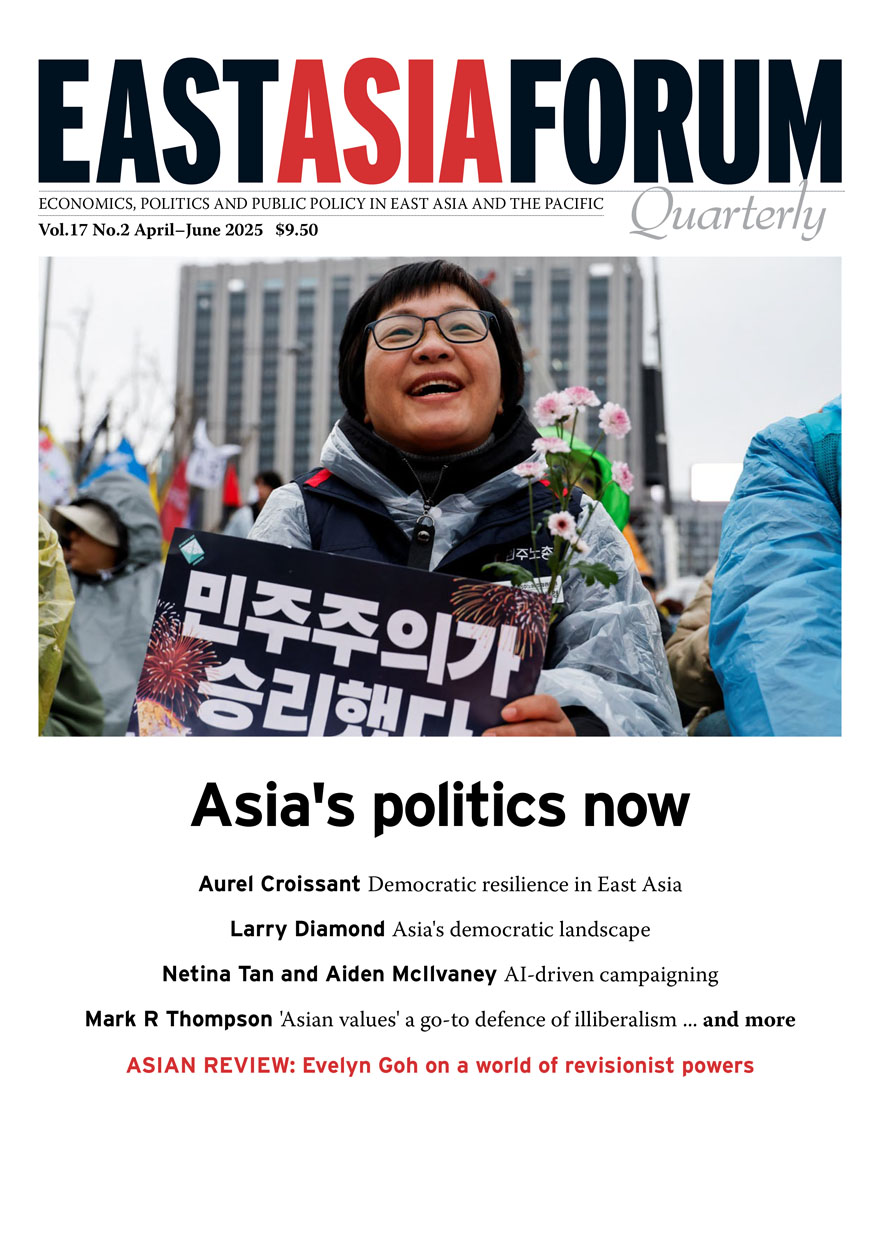
East Asia Forum Quarterly: Volume 17, Number 2, 2025 »

East Asia Forum Quarterly: Volume 17, Number 1, 2025 »

East Asia Forum Quarterly: Volume 16, Number 4, 2024 »
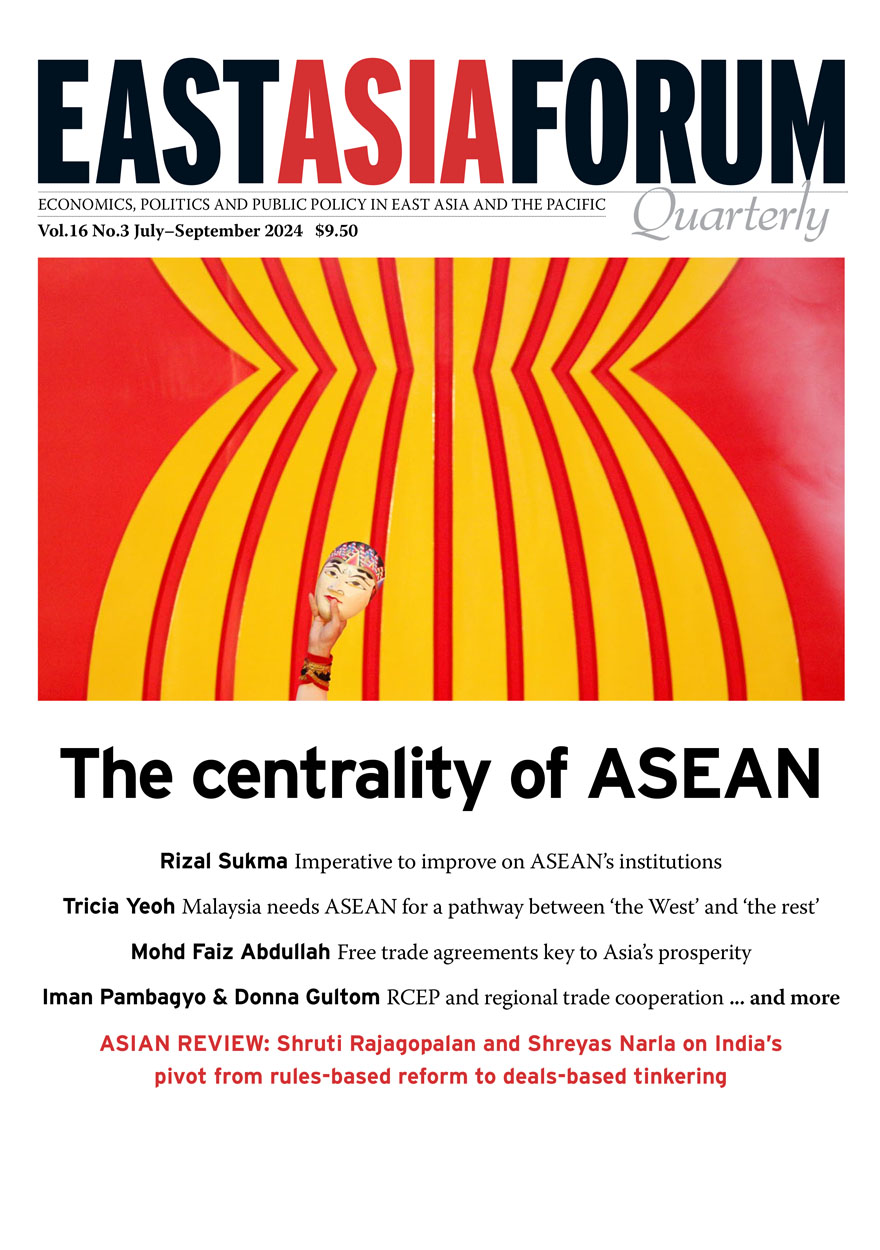
East Asia Forum Quarterly: Volume 16, Number 3, 2024 »

East Asia Forum Quarterly: Volume 16, Number 2, 2024 »

East Asia Forum Quarterly: Volume 16, Number 1, 2024 »

East Asia Forum Quarterly: Volume 15, Number 4, 2023 »

East Asia Forum Quarterly: Volume 15, Number 3, 2023 »

East Asia Forum Quarterly: Volume 15, Number 2, 2023 »

East Asia Forum Quarterly: Volume 15, Number 1, 2023 »

East Asia Forum Quarterly: Volume 14, Number 4, 2022 »

East Asia Forum Quarterly: Volume 14, Number 3, 2022 »

East Asia Forum Quarterly: Volume 14, Number 2, 2022 »
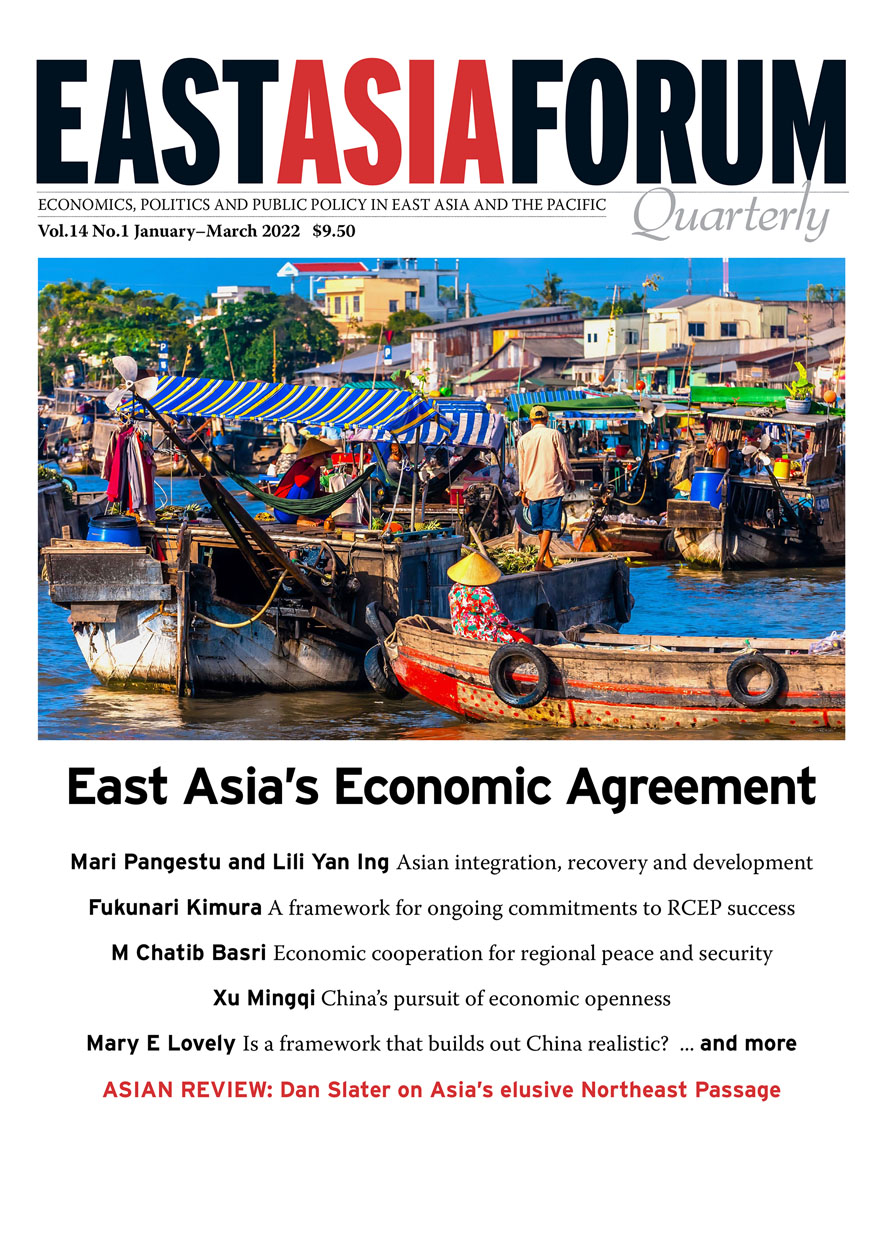
East Asia Forum Quarterly: Volume 14, Number 1, 2022 »
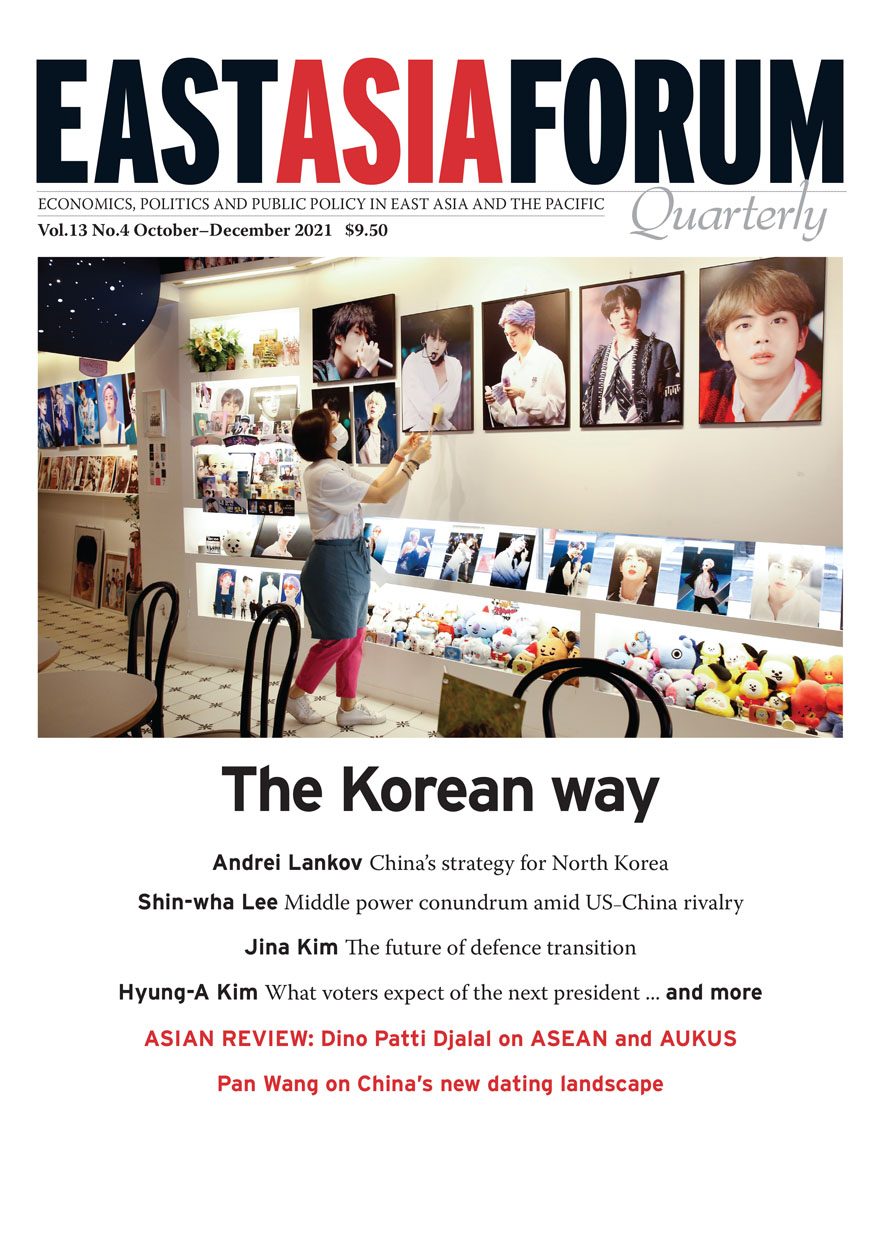
East Asia Forum Quarterly: Volume 13, Number 4, 2021 »

East Asia Forum Quarterly: Volume 13, Number 3, 2021 »

East Asia Forum Quarterly: Volume 13, Number 2, 2021 »

East Asia Forum Quarterly: Volume 13, Number 1, 2021 »

East Asia Forum Quarterly: Volume 12, Number 4, 2020 »

East Asia Forum Quarterly: Volume 12, Number 3, 2020 »

East Asia Forum Quarterly: Volume 12, Number 2, 2020 »

East Asia Forum Quarterly: Volume 12, Number 1, 2020 »

East Asia Forum Quarterly: Volume 11, Number 4, 2019 »
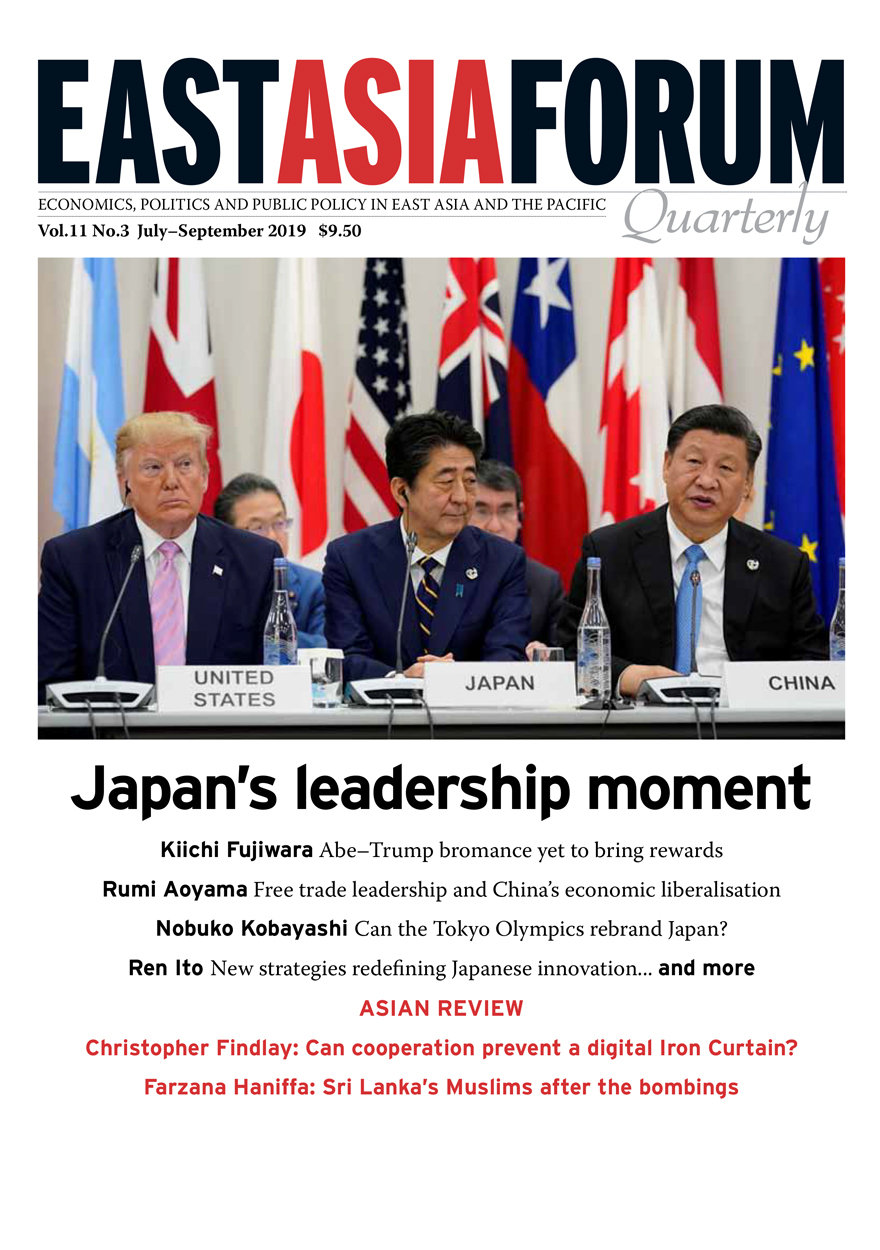
East Asia Forum Quarterly: Volume 11, Number 3, 2019 »
